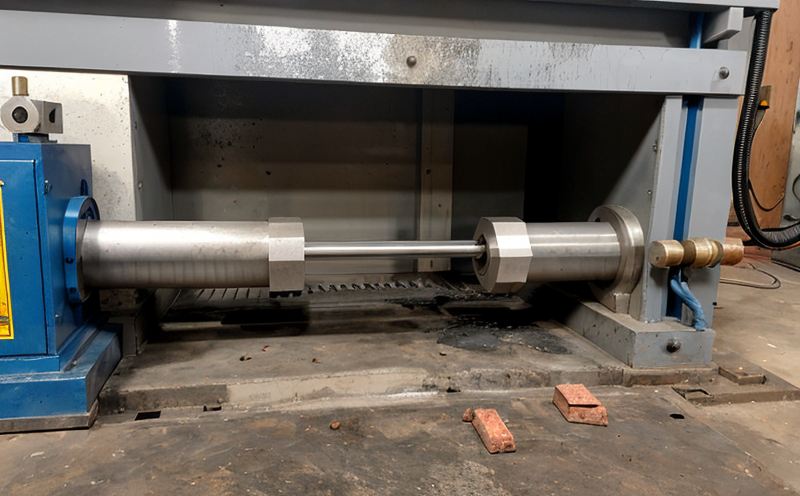ISO 604 Compressive Testing of Plastics
The ISO 604 standard is a critical component in assessing the mechanical properties of plastics, particularly focusing on their compressive strength and modulus. This test method provides essential data for quality managers, compliance officers, R&D engineers, and procurement teams to ensure that materials meet specified performance requirements.
Compressive testing involves applying a compressive load to a specimen until it fails or reaches the desired deformation point. For plastics, this can be particularly challenging due to their unique properties such as viscoelastic behavior and thermal sensitivity. Proper sample preparation is crucial for accurate results; specimens must be conditioned according to specified temperature and humidity conditions prior to testing.
The equipment used in ISO 604 testing includes a universal testing machine equipped with appropriate fixtures capable of applying uniaxial compression forces. Specimens are typically cylindrical or rectangular blocks, depending on the type of plastic being tested. The test setup is designed such that the applied force is perpendicular to the largest surface area of the specimen.
The results from compressive testing provide valuable insights into how a material will perform under compression loads encountered in real-world applications. For instance, this information can inform decisions about selecting appropriate materials for structural components or parts subjected to high-pressure environments.
Understanding the compressive behavior of plastics is also important for manufacturing processes like injection molding and extrusion where precise control over shrinkage rates and dimensional stability is required. By knowing how much force a given plastic will withstand before deformation occurs, manufacturers can optimize their production techniques ensuring minimal waste while maintaining product quality.
Accurate testing not only helps meet regulatory standards but also supports ongoing research efforts aimed at developing new materials with improved mechanical properties. This knowledge contributes significantly towards advancing sustainable practices within the plastics industry by promoting the use of more durable and efficient products throughout their lifecycle.
- Reduces material wastage during manufacturing processes
- Promotes recycling initiatives through better understanding of post-consumer waste characteristics
- Supports development of lightweight components leading to reduced fuel consumption in automotive industries
- Enhances overall product performance by optimizing design parameters based on empirical data derived from comprehensive testing procedures.
Why It Matters
The importance of ISO 604 compressive testing cannot be overstated. Accurate measurement of a plastic's compressive properties ensures that it meets the necessary quality standards and specifications set forth by industry regulations. This is especially true for materials used in critical applications such as automotive parts, building components, medical devices, among others.
By conducting this type of testing regularly, organizations can identify potential issues early on before they escalate into costly problems later down the line. It allows them to make informed decisions regarding material selection and process optimization, ultimately leading to improved product reliability and customer satisfaction.
In addition, compliance with recognized international standards like ISO 604 demonstrates a company's commitment to maintaining high ethical business practices. This can enhance reputation and trust among stakeholders including suppliers, customers, investors, and regulatory bodies alike.
Moreover, understanding the mechanical properties of plastics through rigorous testing contributes positively towards environmental sustainability goals by promoting responsible resource management and waste reduction strategies across various sectors.
Applied Standards
The ISO 604 standard is one among several international standards that address the mechanical properties of plastics, including tensile strength (ISO 528), flexural modulus (ISO 178) and impact resistance (ISO 180). These standards collectively form a comprehensive framework for evaluating different aspects of plastic materials.
When performing ISO 604 compressive tests, it is essential to follow all prescribed procedures outlined in the standard meticulously. This includes using calibrated testing machines, properly conditioning specimens, applying loads at controlled rates, and accurately measuring displacements throughout the test cycle.
The results obtained from these tests can then be used alongside other data points collected during tensile, flexural, or impact tests to create a holistic picture of a plastic's overall mechanical behavior. This integrated approach enables more informed decision-making regarding material selection for various applications.





